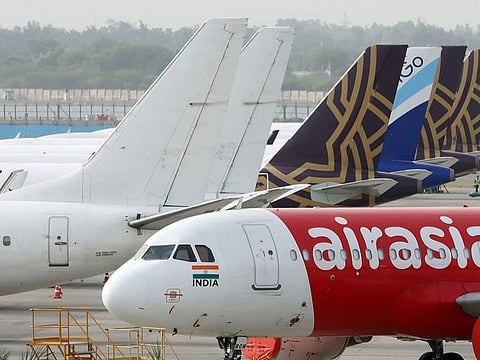Can Indian billionaire Rakesh Jhunjhunwala succeed with an airline where Vijay Mallya failed?
New airline's domestic focus and low-cost aspirations should ensure high visibility

Dubai: Can this Indian billionaire pull it off – launch a new airline in India and, most important, take it anywhere near to profitability?
It would be easy to dismiss Rakesh Jhunjhunwala’s ambitions to launch ‘Akasa’ as wishful thinking. After all, Jhunjhunwala had made his billions playing the stock markets and doesn’t have any experience manning an airline. But here’s the thing – he has made his money taking on risks that would have stopped others in their tracks.
Not for nothing is Jhunjhunwala called ‘India’s Warren Buffet’. And for tips on how not to run an airline, he can always learn from Vijay Mallya and his Kingfisher fiasco.
Jhunjunwala, who is closely followed by Indian businessmen and investors, plans to team up with former heads of IndiGo and Jet Airways to tap into domestic air travel demand. “The two things which work for the start-up airline is that billionaire Jhunjhunwala has deep pockets - so funding should not be an issue,” said Ashwini Phadnis, a Delhi-based aviation analyst.
“Akasa is aiming to be an ultra-low-cost airline, which makes sense as close to 65-70 per cent of domestic aviation is dominated by low cost airlines.”
Low-cost is an advantage
Being low-cost helps airlines keep fares low in a price-sensitive market – but that’s not all of it. They are also some of the first carriers to brush aside the effects of the pandemic.
“In that sort of market, price matters and new low-cost carriers (LCC) do not have legacy costs and practices, allowing them leaner operations,” said Andrew Charlton, independent aviation analyst. “There are also plenty of aircraft, slots and crews around, so it is lower cost than normal to set up”
“LCCs are well positioned because long-haul international aviation is currently difficult because of the international restrictions, making domestic and at best regional flying more attractive.”
Factoring in oil prices
Akasa could keep a tight lid on most expenses, but fuel costs is an area where even the most frugal airlines often fail. “The industry input costs are very high with aviation turbine fuel accounting for almost 40 per cent of an airline’s operating costs,” said Phadnis.
IndiGo, India’s No. 1 carrier, learnt it the hard way in its latest quarter with fuel-related costs surging nearly 845 per cent to 12.15 billion rupees (Dh600 million) compared to 2020. “Fuel was unfortunately a big negative driver and our year-on-year fuel cost adjusted for overall capacity impacted us by 5.4 billion rupees,” said Rono Dutta, Indigo’s CEO, during a post-earnings call.
Since hitting lows of $23 a barrel last year, international crude prices have now surged past the $75 mark, amid optimism around fuel demand recovery. The key to survival will be a combination of right routes - including Tier 2 and Tier 3 cities - along with the metros and also choosing the right aircraft, said Phadnis.
King of Indian stocks
Rakesh Jhunjhunwala started stock trading when he was in college with Rs5,000 in 1985. By 2018, that capital had inflated to Rs11 million. Besides investing in stock markets, he is also a charted accountant. Jhunjhunwala also has stakes in privately held companies such as Star Health Insurance, Metro Brands and Concord Biotech. Jhunjhunwala earned his first big profit in 1986 when he bought 5,000 shares of Tata Tea at Rs43 and the stock rose to Rs143 within three months. In three years he earned Rs2 million. Being one of the most popular investors of India, Jhunjhunwala’s investment decisions dictates markets trends. Most of the investment firm in the region follow his footsteps for promising returns.
Aviation overhaul
Meanwhile, India’s aviation industry is going through big changes. Jet Airways, which has not flown since 2019, is on the cusp of revival after being acquired last year by a Dubai-based investor. National carrier Air India is in the process of being privatized.
GoAir, now called GoFirst, has announced a full-scale revamp and embrace the ‘ultra-low cost carrier’ operating model. The carrier is going after an even more price-sensitive segment, foregoing corporates.
Some aviation players are thinking out of the box. An Indian entrepreneur recently introduced the idea of a subscription-based airline called ‘Prince Air’. Founder Sanket Raj Singh has already started pre-selling memberships and plans to kick-start operations after hitting at least 10,000 members.
Meanwhile, India’s aviation industry is going through big changes. Jet Airways, which has not flown since 2019, is on the cusp of revival after being acquired last year by a Dubai-based investor. National carrier Air India is in the process of being privatized.
Sign up for the Daily Briefing
Get the latest news and updates straight to your inbox







